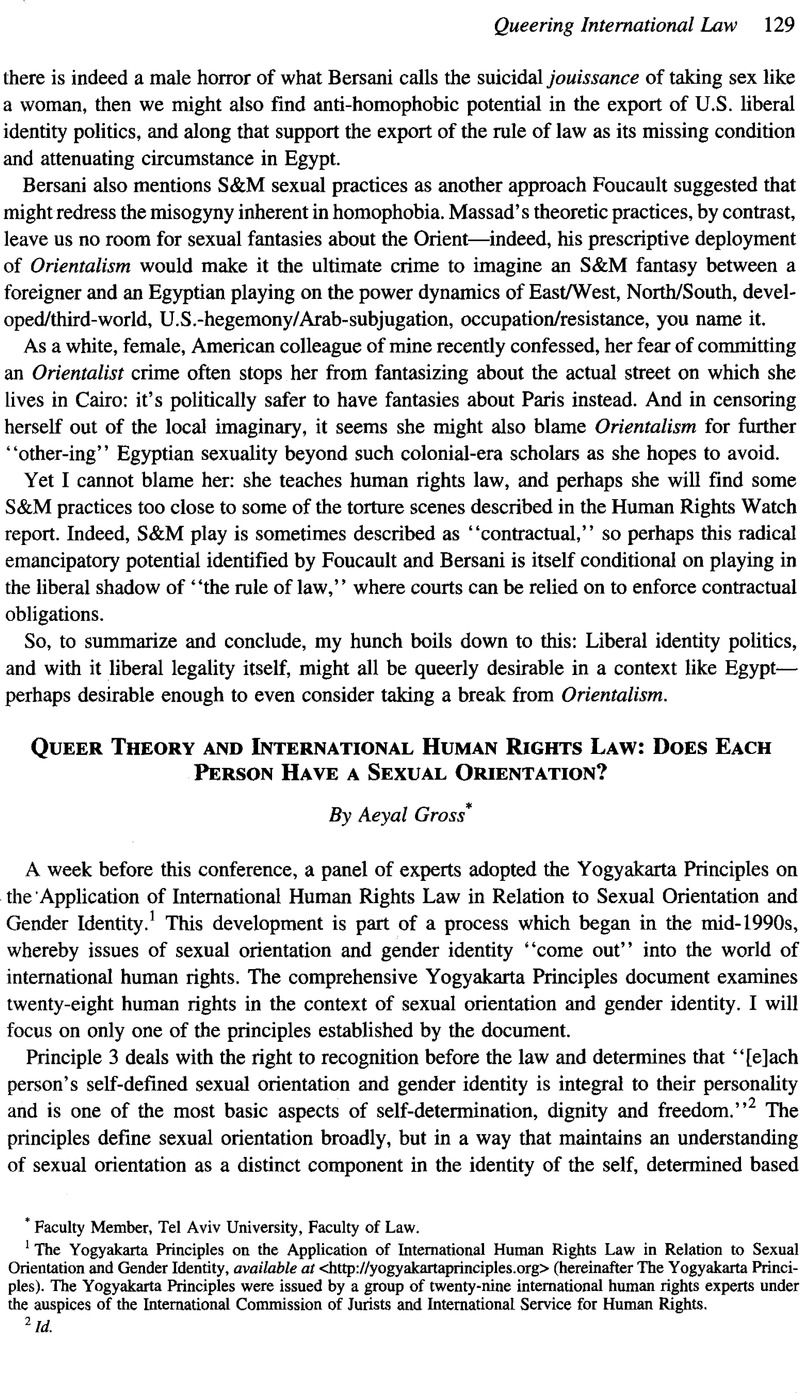Article contents
Queer Theory and International Human Rights Law: Does Each Person Have a Sexual Orientation?
Published online by Cambridge University Press: 28 February 2017
Abstract

- Type
- Queering International Law
- Information
- Copyright
- Copyright © American Society of International Law 2007
References
1 The Yogyakarta Principles on the Application of International Human Rights Law in Relation to Sexual Orientation and Gender Identity, available at <http://yogyakartaprinciples.org> (hereinafter the Yogyakarta Principles). The Yogyakarta Principles were issued by a group of twenty-nine international human rights experts under the auspices of the International Commission of Jurists and International Service for Human Rights.
2 Id.
3 Gross, Aeyal, Walker, Kristen, & Blank, Yishai, Liberalizing Markets and Sexuality, 93 ASIL Proc. 222 (1999)Google Scholar.
4 Massad, Joseph, Re-Orienting Desire: The Gay International and the Arab World, 14 Pub. Culture 361 (2002)CrossRefGoogle Scholar.
5 Human Rights Watch, in A Time of Torture: The Assault on Justice in Egypt’s Crackdown on Homosexual Conduct (2004).
6 For further discussion, see Gross, Aeyal, Sex, Love and Marriage: Questioning Gender and Sexuality Rights in International Law, 21 Leiden J. Intl L. (forthcoming, 2008)Google Scholar.
- 1
- Cited by


